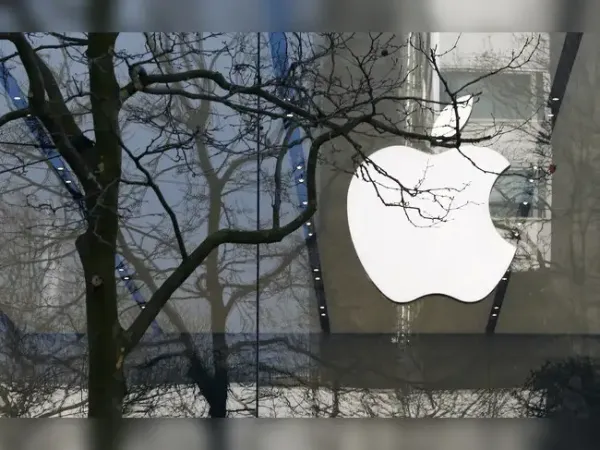iPhone maker Apple has approached the Delhi High Court to contest recent changes to India’s competition law, which let the Competition Commission of India (CCI) calculate fines using a company’s global turnover.
This is the first challenge to the new rule, which previously allowed penalties only on India-based turnover.
What Apple is disputing
Under the amended Competition Act, the CCI can impose fines of up to 10% of a company’s “global turnover derived from all the products and services” retrospectively. Earlier, penalties were limited to the “relevant turnover” linked to the product or service under investigation in India.
Apple argues that the new framework could expose it to a penalty of up to $38 billion and says the law is “manifestly arbitrary, unconstitutional, grossly disproportionate, unjust.”
The company stressed that it must file this constitutional challenge now to avoid retrospective penalties.
Apple’s penalty example
Apple said that fines should apply only to the part of a business that breaches the law, not to its entire global operations.
The Tim Cook-led company provided a simple example: if a company sells toys and stationery, but only the toys violate the law, penalties should apply to toy revenue only. The company said it would be unfair to base the fine on the stationery business’s turnover of, say, Rs 20,000 when the violation pertained to the toy segment, which earned, say, Rs 100.
Other parts of the challenge
Apple has also sought partial “quashing” of the CCI’s Confidentiality Ring Order of March 3, 2025, which asks Apple Inc and Apple Distribution International to provide audited “Interlinked Financial Statements” for FY2022 to FY2024 by applying the amended penalty rules retrospectively.
According to the petition, the new penalty measures violate the “doctrine of proportionality” under Articles 14 and 21 of the Constitution, noting that “the law looks forward, not backward...” and that retrospective application requires explicit legislative intent.
The company further wants the court to declare Penalty Guidelines 3(7) and 8(1) as arbitrary and beyond the powers of the Competition Act, and to restrain the Ministry of Corporate Affairs and the CCI from enforcing Section 27(b), of the Penalty Guidelines and the Turnover Regulations.
Wider implications for businesses
Experts say the change could significantly impact foreign companies operating in India and Indian companies with substantial overseas revenue, potentially increasing monetary liability in competition cases.
A division bench led by chief justice Devendra Kumar Upadhyaya and justice Tushar Rao Gedela was due to take up the case on Wednesday, but the hearing did not take place. It is now scheduled for December 3, with senior counsel AM Singhvi representing Apple.
This is the first challenge to the new rule, which previously allowed penalties only on India-based turnover.
What Apple is disputing
Under the amended Competition Act, the CCI can impose fines of up to 10% of a company’s “global turnover derived from all the products and services” retrospectively. Earlier, penalties were limited to the “relevant turnover” linked to the product or service under investigation in India.
Apple argues that the new framework could expose it to a penalty of up to $38 billion and says the law is “manifestly arbitrary, unconstitutional, grossly disproportionate, unjust.”
The company stressed that it must file this constitutional challenge now to avoid retrospective penalties.
Apple’s penalty example
Apple said that fines should apply only to the part of a business that breaches the law, not to its entire global operations.
The Tim Cook-led company provided a simple example: if a company sells toys and stationery, but only the toys violate the law, penalties should apply to toy revenue only. The company said it would be unfair to base the fine on the stationery business’s turnover of, say, Rs 20,000 when the violation pertained to the toy segment, which earned, say, Rs 100.
Other parts of the challenge
Apple has also sought partial “quashing” of the CCI’s Confidentiality Ring Order of March 3, 2025, which asks Apple Inc and Apple Distribution International to provide audited “Interlinked Financial Statements” for FY2022 to FY2024 by applying the amended penalty rules retrospectively.
According to the petition, the new penalty measures violate the “doctrine of proportionality” under Articles 14 and 21 of the Constitution, noting that “the law looks forward, not backward...” and that retrospective application requires explicit legislative intent.
The company further wants the court to declare Penalty Guidelines 3(7) and 8(1) as arbitrary and beyond the powers of the Competition Act, and to restrain the Ministry of Corporate Affairs and the CCI from enforcing Section 27(b), of the Penalty Guidelines and the Turnover Regulations.
Wider implications for businesses
Experts say the change could significantly impact foreign companies operating in India and Indian companies with substantial overseas revenue, potentially increasing monetary liability in competition cases.
A division bench led by chief justice Devendra Kumar Upadhyaya and justice Tushar Rao Gedela was due to take up the case on Wednesday, but the hearing did not take place. It is now scheduled for December 3, with senior counsel AM Singhvi representing Apple.








